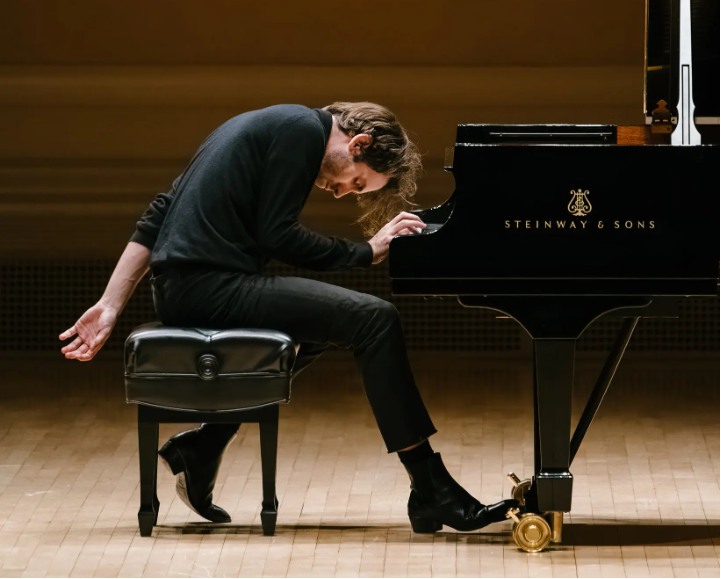- Web
- Yesterday
French pianist Alexandre Kantorow’s Carnegie Hall debut
-

- Web Desk
- Oct 27, 2023

In a triumphant return to Carnegie Hall, the talented French pianist, Alexandre Kantorow, wowed audiences with a spellbinding recital that marked his long-anticipated debut on the illustrious New York stage. Kantorow’s performance was a testament to his exceptional prowess as he masterfully tackled a challenging repertoire, demonstrating both technical brilliance and artistic maturity.
Kantorow’s journey to the Carnegie Hall stage was not without its twists and turns. Originally slated to make his Carnegie Hall recital debut on March 25, 2020, as a substitute for the ailing Murray Perahia, his plans were thwarted by unforeseen circumstances. However, Kantorow’s determination and remarkable talent eventually led him back to Carnegie Hall, this time filling in for the eminent Maurizio Pollini, making a powerful statement about the rise of a new generation of performers.
Last lunar eclipse of 2023 tonight
The significance of Kantorow’s performance was further underscored as it followed the Emerson String Quartet’s retirement concert at Alice Tully Hall, providing a poignant juxtaposition between an illustrious career’s end and a rising star’s emergence.
While Kantorow had previously graced Carnegie Hall’s Zankel Hall in 2019, Sunday’s recital on the main stage represented an entirely new platform. The stakes were raised even higher due to Kantorow’s recent recognition as the recipient of the prestigious $300,000 Gilmore Artist Award, a distinction bestowed upon a pianist every four years through a secretive selection process, akin to the MacArthur Foundation’s “genius” grants.
Kantorow’s repertoire for the evening, on the surface, might have seemed familiar, with selections from Brahms, Bach, Liszt, and Schubert. However, his choices revealed a distinctive and fresh approach. He performed Brahms’s Sonata No. 1, a complex and rarely heard piece. His rendition of Bach was not the conventional version but Brahms’s grand transcription for the left hand of the Violin Chaconne in D Minor, adding a unique twist to a classical favorite. The Liszt pieces consisted of his interpretations of Schubert songs, with one composition never before heard at Carnegie. Only Schubert’s “Wanderer Fantasy” could be classified as a well-known standard.
Kantorow’s poetic interpretation of Brahms involved an expressive use of rubato, with moments of dramatic tempo shifts that evoked vivid imagery. The Scherzo was infused with a spirited energy that transformed it into a captivating danse macabre, while both the Scherzo and the fourth movement exhibited breathtaking speed without sacrificing clarity.
His rendition of Brahms’s Bach was a testament to his meticulous approach, marked by precise variations in intensity and amplitude. Among the Liszt-Schubert transcriptions, “Die Stadt” stood out as a revelation, blending the song’s moodiness with Liszt’s extroverted style, resulting in cascades of notes that emerged from the shadows.
Kantorow’s performance seamlessly transitioned to Schubert’s “Wanderer Fantasy,” where his eloquent playing, characterized by clear and balanced lines, captivated the audience. The tension between Kantorow’s crystalline touch and his Romantic interpretations created a mesmerizing musical experience.
Staunch conservative elected House Speaker by US parliament
As the audience erupted in applause, Kantorow offered two encores, transcriptions of “Mon coeur s’ouvre à ta voix” from Saint-Saëns’s “Samson et Dalila” and the finale of Stravinsky’s “Firebird.” These encores showcased Kantorow’s ability to balance suavity and showmanship, leaving the audience in awe.
Alexandre Kantorow’s Carnegie Hall debut will undoubtedly be remembered as a momentous occasion, solidifying his status as a pianist of exceptional talent and depth. His performance symbolised the bridge between tradition and innovation, marking a new chapter in the world of classical music.




